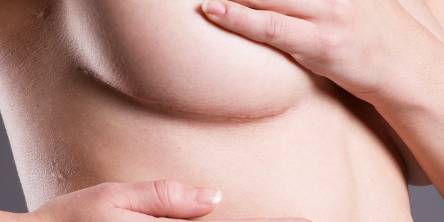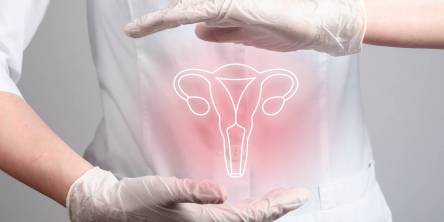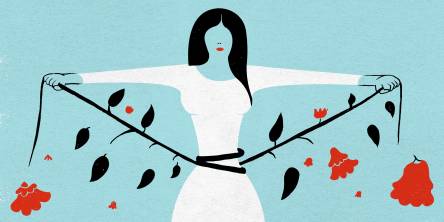Top 7 Reasons Behind Your Frequent Urination
Do many nighttime wake-up calls or interruptions to your daytime activities result from frequent bathroom visits? Six to seven trips to the bathroom in a 24-hour period is normal for most people. However, urinating more frequently could be a symptom of a serious problem.
Keep reading to discover some of the most common offenders when it comes to resulting in frequent bathroom visits.
1. Coffee
We all like our morning cup of coffee, but too much caffeine can result in you visiting the bathroom more often. Coffee, the majority of teas, sodas, and energy drinks all have caffeine. It causes the bladder to contract earlier than it should, making it work harder and leading to more frequent urination. The urgency can be lessened by cutting back on your coffee consumption, switching to decaf, or both at the same time.
2. Constipation
Many individuals are surprised to learn that the same nerves that regulate the rectum and colon also regulate the bladder. An irritated rectum, as well as an overactive bladder, are all symptoms of constipation. In many people, addressing constipation also relieves the symptoms of frequent urination.
3. Spicy meals
Spices can irritate the bladder, resulting in pelvic discomfort, frequent urination, or an urgent need to urinate. Those who have interstitial cystitis, an overactive bladder, or other disorders associated with it are more prone to these symptoms. Additionally, eating spicy food may increase urine retention, making it more challenging to completely empty your bladder. However, not everyone who has a spicy meal will feel uncomfortable in the bladder.
4. Urinary tract infection (UTI)
Your bladder becomes irritable and inflamed when there is an infection. It then sends signals to use the bathroom more frequently as a result. You'll typically need to urinate despite having an empty bladder if you have a UTI. Additionally, you can have pain or cramping in your abdominal area.
5. Bladder or urethral stones
Your urethra may occasionally get blocked by a bladder stone, preventing proper bladder emptying. This results in a bladder that is not only hyperactive but also occasionally completely full. The stone may pass through the ureter and down the urinary system once it forms. Small stones can occasionally pass through urine without causing too much discomfort. However, immovable stones might result in a pain-causing urine backup in the kidney, ureter, bladder, or urethra.
6. Vaginal irritation
A woman's body has a very small urethra, so anything that irritates the area where it opens at the vagina can result in the bladder getting spasmed. This explains why many women experience UTI symptoms after having sex. Usually, rubbing causes the urethra to become inflamed rather than a UTI. It's vital to empty your bladder after intercourse.
7. Bladder cancer
Any growth that results in an abnormal change to the bladder's inside might make it hyperactive, causing an increased need to urinate. Although bladder cancer is not a prevalent trigger of overactive bladder in those under 50, it should be evaluated because the symptoms might be similar to those of a UTI. The American Cancer Society highlights urinary changes, including:
- More frequent urination than normal
- Having a painful or burning sensation when urinating
- Having the urge to pee immediately, even when your bladder is not full
- Having a weak urine stream or difficulty urinating
- Waking up frequently through the night to use the bathroom
The bottom line
Even though frequent trips to the bathroom are usually not a cause for concern, it is nevertheless vital to consult a urologist and learn how to stop frequent urination. Your doctor can order tests to identify the cause behind your symptoms and develop an appropriate plan of treatment.
Similar Articles
Uterine fibroids are benign tumors that develop in the uterine muscle tissue. According to the US Office on Women's Health (OWH), fibroids can grow as a single tumor or as a cluster in the uterus, and they can be as small as an apple seed or as large as a grapefruit.
Your pregnancy test came back positive, and nothing, not even early pregnancy symptoms like morning sickness or exhaustion, can dampen your spirits. However, it is natural to worry about what to do when you discover you are pregnant.
A breast lift, like any other operation, involves skin incisions. Scarring occurs when your skin generates new tissues and mends the wound after an incision. There are, however, measures to reduce scarring before, during, and after a breast lift.
The cervix's proper functioning is crucial to a woman's reproductive health and fertility. However, most women do not know anything or have a limited understanding of it. As a result, there are numerous misconceptions surrounding cervical health.
The cervix is the lower part of the womb (uterus), where the fetus develops during pregnancy. A tiny hole in the cervix widens during birthing. It also lets menstrual blood exit her body.
Shatavari is a very renowned ayurvedic herb containing plenty of health benefits. It is also known as the universal rasayan. The word shatavari refers to a woman with a hundred husbands signifying the traditional use of this herb to boost the reproductive system of the body.
Despite the fact that around half of the world's population experiences, will experience, or has experienced menstruation, misunderstandings regarding this biological process remain.
Throughout your life, you may anticipate getting your period roughly 450 times. Even if you've gotten the hang of your cycle, there's a good possibility that some menstruation mysteries remain unanswered
Annual gynecological check-ups are essential for every woman to stay healthy. However, there are a lot of conditions that require medical attention. You should understand that the sooner you will be diagnosed and treated, the easier and more effective the treatment will be









